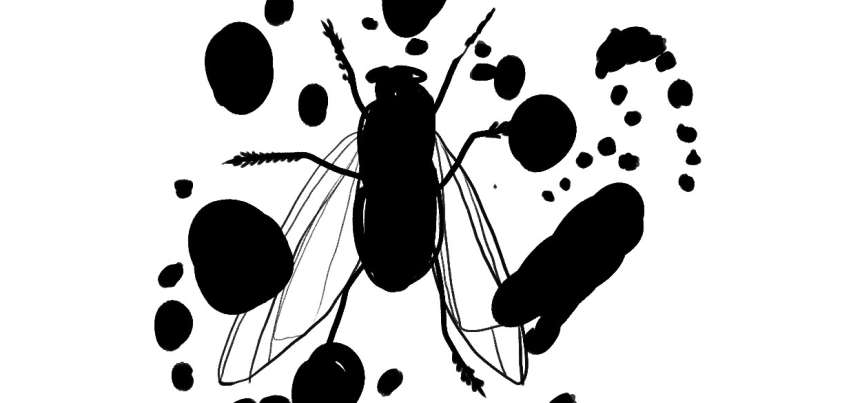 Katherine Mansfield‘s The Fly is about death, grief and aging. Two old men handle their sons’ wartime deaths differently. Six years have passed. Mr Woodifield, in poor health physically and mentally, has come to terms with the loss of his son. “The boss”, healthy and successful, still grieves… but not for his son. He laments the sacrifices he made in preparing the boy to take over his business, and shows his true character by torturing a fly. This leaves him feeling wretched and frightened. Could the fly’s struggles have reminded him that even the strongest (himself included) eventually die?
Katherine Mansfield‘s The Fly is about death, grief and aging. Two old men handle their sons’ wartime deaths differently. Six years have passed. Mr Woodifield, in poor health physically and mentally, has come to terms with the loss of his son. “The boss”, healthy and successful, still grieves… but not for his son. He laments the sacrifices he made in preparing the boy to take over his business, and shows his true character by torturing a fly. This leaves him feeling wretched and frightened. Could the fly’s struggles have reminded him that even the strongest (himself included) eventually die?
Original Text / PDF (2,187 words)
General Comments
As indicated in the introduction, the main themes of The Fly involve two aspects of death: how we deal with it (grief), and how we approach it (in this case aging).
Death would have been very much on Mansfield’s mind at the time she wrote the story in early 1922. Over the previous four years, she had been seeking a cure for the tuberculosis that would lead to her death less than a year later. Elements of the story may also be biographical. Her only brother died in a British Army training accident while serving in Belgium six years earlier. At 21, he had also worked in their father’s importing company before joining the army.
In the story, Mr Woodifield has accepted the loss of his son. He is getting on with his life, and can talk openly about the boy and “the girls'” visit to his war grave. The boss has been unable to grieve properly. He cannot separate the death of his son from his shattered dream that the boy will succeed him in running the family business. We are told that the day the boss heard the news he left the office a broken man, with his life in ruins. He has taken the loss personally, and feels betrayed by fate.
There is irony in the way in which Mansfield contrasts the two men. Mr Woodifield has had a stroke. He is in poor health, has memory lapses, and spends six days a week “boxed up” at home where he is cared for by his protective wife and “the girls”. He envies the boss’s health (stout, rosy and still going strong), success (as reflected in the comfortable office), and freedom (to enjoy his expensive cigars and whiskey). Despite all this, Woodifield appears satisfied with his lot in life. The boss, who has all the things that Woodifield admires, leads a tortured life.
There are a number of possible interpretations as to the role of the fly in the story. For me, the fly is a symbol of mankind. Individually, we are each a small, inconspicuous speck in the grand scheme of nature. Sometimes fate deals us a cruel blow that even the strongest or richest cannot overcome. Mansfield must have felt this in trying to overcome her tuberculosis. With his dreams crushed and signs that he, too, was beginning to experience memory problems, the boss must have felt the same way.